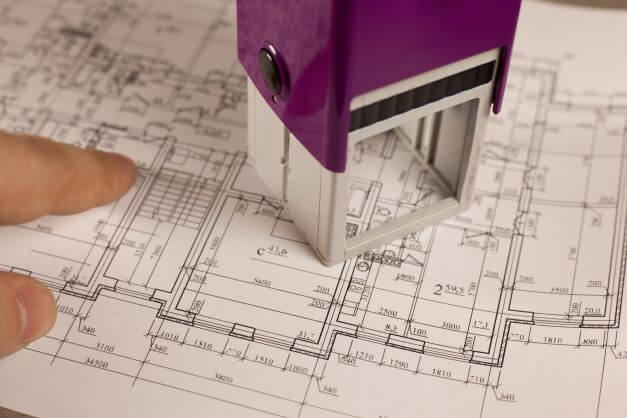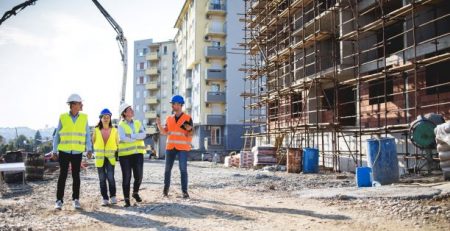A How To Guide For Obtaining Planning Permission
Whether it be for alterations to a home such as an extension, or building a new commercial building for business purposes, you need to get planning permission in the UK when erecting a building of some sort. The process to successfully getting your planning permission application approved can be a difficult and longwinded one.
Suppose you are in this position yourself. Read on to discover all you need to know about getting planning permission, both in the coming months and beyond.
New Builds
A new build is a residential building that didn’t exist before and this includes new foundations, the structure of the house, fittings and fixtures, and household facilities such as gas, water, and electricity. For any new build, you will require planning permission.
Seek Pre-application Advice
Before making a planning permission application to the local planning authority, developers and prospective houseowners should firstly try and get pre-application advice from the planning department of the council, as well as professionals such as architects and planning consultants. Specialists involved in the building and planning industry will possess an in-depth understanding of all the pitfalls of the planning permission process.
If there are major critical issues which mean the building project application will almost certainly be rejected by the local planning authority, such as the site being on contaminated land, professionals should be able to flag this up to you early on. If there are clear and obvious reasons why planning permission for a given area of land will not be granted, it’s better not to waste more of your money on land inspections, drawings, plans and so on.
Conduct Adequate Research
Whilst you are in the process of drawing up a planning application, you should do plenty of research, as your application will be subject to complicated national and local legislation requirements.
Local Planning Authorities can be meticulous and reject planning permission applications due to relatively small considerations that you may not have thought of. For example, building work for a home or a development that disrupts or destroys a bat roost may be rejected, as bats living and breeding in the UK are fully protected by UK and EU legislation.
To obtain a licence to go ahead with building work that disturbs or destroys a bat roost, you must apply for a licence from Natural England, Natural Resources Wales, or Scotland Natural Heritage. A bat survey is needed before you can obtain a licence to start the building works. When needing to get a bat survey, consider consulting industry leaders like Bat Surveys. Offering over ten years’ experience in this aspect of building work, you can rest assured the bats will be protected, but so will your building project.
 Submitting Your Application
Submitting Your Application
You can submit a planning permission application online through the Planning Portal. Applications are then gone through with a fine-tooth comb by the LPA. To increase the likelihood that your application will be accepted by your LPA, remember to submit all of the necessary documents in your planning permission application, as well as paying all the application fees.
After submitting planning applications it’s pretty much a waiting game. It usually takes a bit longer and as much as up to 16 weeks for major planning applications to be processed and a decision to be made. Decisions on planning permission applications for standard residential homes tend to take a bit shorter and around 8 weeks.
Consultations and Decisions on Planning Permission Applications
In the next stage, consultation letters are sent to the neighbours and relevant bodies, the local papers can also be informed.
Decisions on planning permission applications are made by the Local Planning Authority who only takes certain issues into consideration, which are known as the ‘material planning considerations’. There is a long list of material considerations, and this gives the Local Planning Authority plenty of grounds why they may decide to reject a planning permission application.
The Option of Building Your Own Home
When you buy land which doesn’t initially have planning permission and you then manage to get planning permission granted on the land, the land’s value instantly shoots up in price. This therefore means that before even building on the land, you can already sell it at a profit.
If you budget carefully and price everything up accurately, building your new house yourself or having someone else build it for you from scratch can also be a cost-effective option. You can save money building a new home and pricing up all the expenses to cover the materials and the labour etc instead of buying a home from a developer or from someone else living in it.
Building your own idyllic home on a nice plot of land you’ve found is everyone’s dream. However, you should be aware that it’s easy to find yourself going well over budget when building your own home. The building process may take a lot longer than you had previously expected and you may have to cover the additional labour costs. The building materials may also go well over the budget that you had in mind.
So, although the original idea of building your own home may seem like a dream, it can easily turn into a nightmare and a financial burden. Remember, in the planning permission application you will have already spent a lot of money on having surveys of the land done and so on.
Getting Planning Permission Approved for Major Developments Can Be Tricky
There are a multitude of reasons why it can be hard to get planning permission approved for major developments such as a large block of flats or apartments.
One reason is due to discontent and disapproval from the local community. The LPA assesses the impact on the neighbourhood in its decision on whether to grant planning permission for a development. In addition, there are sometimes pressures placed on developers from disapproving residents in local council meetings, pressure groups, public campaigns and through negative press coverage in the media.
The decision makers in the Local Planning Authority considering a planning permission application for a major development will cross reference the developer’s proposals against their criteria. Developers should definitely look for the support of skilled architects, but they are by no means cheap to work with. Before embarking on launching a major large scale development project, developers should make sure they have an extensive understanding of how to get planning permission granted.











